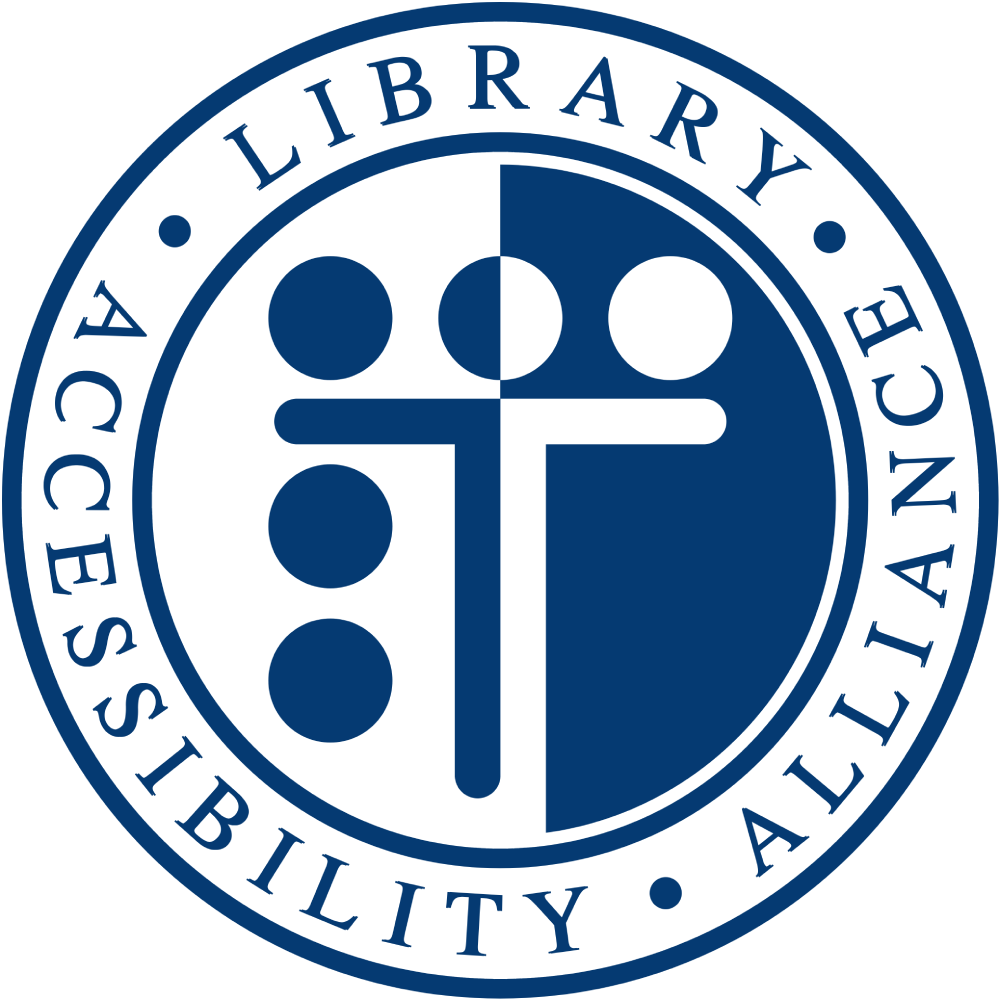The Library Accessibility Alliance consists of a steering committee that guides the direction of the organization, and several action committees that conduct the work of the LAA.
Steering committee
Two people from each member consortium serve on the Steering Committee: one representative from each consortium's member libraries and a second consortium staff person. An optional library representative, usually a dean or director, may also be appointed to monitor or advise the LAA Steering Committee. Voting representative terms are two years.
The Steering Committee provides:
- Strategic direction for the LAA
- Review and approval of operational policies and guidelines
- Onboarding of new consortia members
- Bi-annual activity reports
Action committees
Each LAA member consortium nominates four to five representatives from their member libraries to work on the action committees. Representatives serve two year terms.
E-resource Testing
The E-Resource Testing Committee manages accessibility evaluations of library databases. The group focuses on identifying, facilitating, and posting two e-resource accessibility evaluations for the LAA each month. It seeks to select e-resources that are commonly held by member libraries, represent a variety of subject areas and e-resource types, and that are recommended by member libraries for evaluation. The Testing Committee communicates with the LAA’s accessibility testing partners to complete the reports. Testing Committee members send the reports to vendors/publishers and post them along with any vendor responses to the LAA website.
Impact & Analysis
The Impact & Analysis Committee conducts surveys, compiles data, and creates reports to document the impact of the LAA. The Committee publishes an annual report highlighting the reports of the year and analyzing trends in accessibility compliance. Past work includes a whitepaper analyzing the impact of the LAA's work on libraries and vendors, and a study, "Accessible services in academic libraries: a content analysis of library accessibility webpages in the United States".
Training & Professional Development
The Training Committee develops the annual LAA webinar series and organizes training opportunities for LAA members. The Committee identifies themes and topics of webinars, seeks out appropriate instructors and facilitators, and works with other LAA-affiliated groups in promoting these events to reach the widest possible audience. Training Committee members also coordinate live captioning and ASL interpreters for the LAA webinars.
Communication & Outreach
The Communications Committee publicizes the work of the LAA through social media and other venues, writes press releases, maintains and expands the LAA toolkit, develops documentation and provides feedback and ideas for LAA presenters, and speaks and builds connections with those interested in discussing the LAA’s work.
Vendor Relations
The Vendor Relations Committee provides education and guidance about Voluntary Product Assessment Templates (VPATs) to libraries and vendors. The goal is to move toward more meaningful advocacy and accessibility practices beyond just reviewing VPATs. The Committee works with vendors that the LAA evaluates to increase engagement and find opportunities to share accessibility best practices with libraries, vendors, and publishers.
 Library Accessibility Alliance
Library Accessibility Alliance